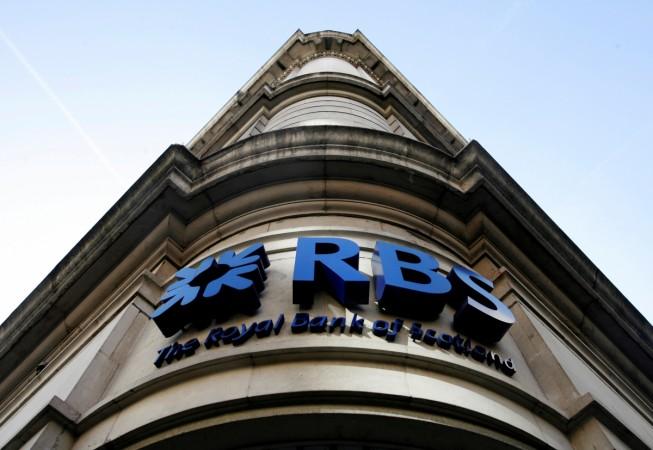
Royal Bank of Scotland must boost its capital buffers after failing this year's stress test of seven British lenders, the Bank of England said on Wednesday.
The state-backed lender rushed out a statement following the announcement to say it would take a range of actions, including selling off bad loans and cutting costs to make up the capital shortfall identified by the tests of around 2 billion pounds ($2.49 billion).
The unexpected result underlines the litany of problems RBS is grappling with, which include a mounting legal bill for misconduct ahead of the 2008 financial crisis and difficulties selling off assets such as its Williams & Glyn banking business.
The lender said it had agreed a plan of action with the Prudential Regulation Authority, the Bank of England's enforcement arm, that should mean it does not have to tap markets to raise the money needed.
"RBS has agreed a revised capital plan with the PRA to improve its stress resilience in light of the various challenges and uncertainties facing both the bank and the wider economy," the bank said.
RBS is expected to settle soon with US authorities over its alleged mis-selling of mortgage backed securities in the run-up to the crisis,
Barclays also fell short by some measures but it will not have to submit a new capital raising plan because it has already announced steps to strengthen its defences, the BoE Financial Policy Committee (FPC) said.
Standard Chartered missed some of the test's targets, but it too will not have to take any new steps to bolster its capital buffers as it was already taking measures, the BoE added.
The banks' performance in the stress test was worse than many market participants had expected.
"Today's performance is worse than predicted, this is the highest average fall in CET1 (a measure of capital) and leverage ratios we've seen in the history of a UK concurrent stress test," said Steven Hall, banking partner at KPMG.
This year's health check, the third so far by the BoE since the 2007-09 financial crisis, forced taxpayers to bail out lenders like RBS, was the toughest yet, combining shocks to the global and domestic economies.
HSBC, Lloyds Banking Group, Nationwide and Santander UK did not reveal any capital inadequacies in the test, the BoE said.
Britain's banking system underwent a severe real-life test in June when markets and sterling plummeted in response to Britain's vote to leave the European Union.
RBS said it needs an extra percentage point of capital - worth around 2 billion pounds - which could be achieved by further sales of assets, rather than having to tap markets.
RBS's new capital plan has already been accepted by the BoE's Prudential Regulation Authority supervisory arm, the BoE said.
The BoE has said that the overall level of capital in the UK banking system was satisfactory, equivalent to 13.5 percent of risk-weighted assets. The need for RBS and Barclays to raise their capital holdings does not alter this overall picture.
"The Financial Policy Committee judged that, as a consequence of the stress test, the banking system is in aggregate capitalised to support the real economy in a severe, broad and synchronised stress scenario," the FPC said in a statement.
Next year, the BoE will introduce a second stress test to run alongside its now annual check.
The BoE gave more detail on this second test on Wednesday, saying it will cover a seven-year period - longer than the five years in the basic test - and look at "severe headwinds" challenging profitability.
Banks could be required to change their business models to make them more sustainable as they face a prolonged period of low interest rates and uncertainty over Britain's future relations with the European Union after it leaves the bloc.
"Changes to business models as the UK withdraws from the EU could have implications for resilience," the BoE said.
The BoE is now developing a system-wide stress test to assess the dynamics of broader markets under stress, and will complete an "in depth" assessment of risks from derivatives trades.
The FPC also published on Wednesday an assessment of insurers' investment activities, concluding that changes were needed to the EU's insurance rules known as Solvency II.









